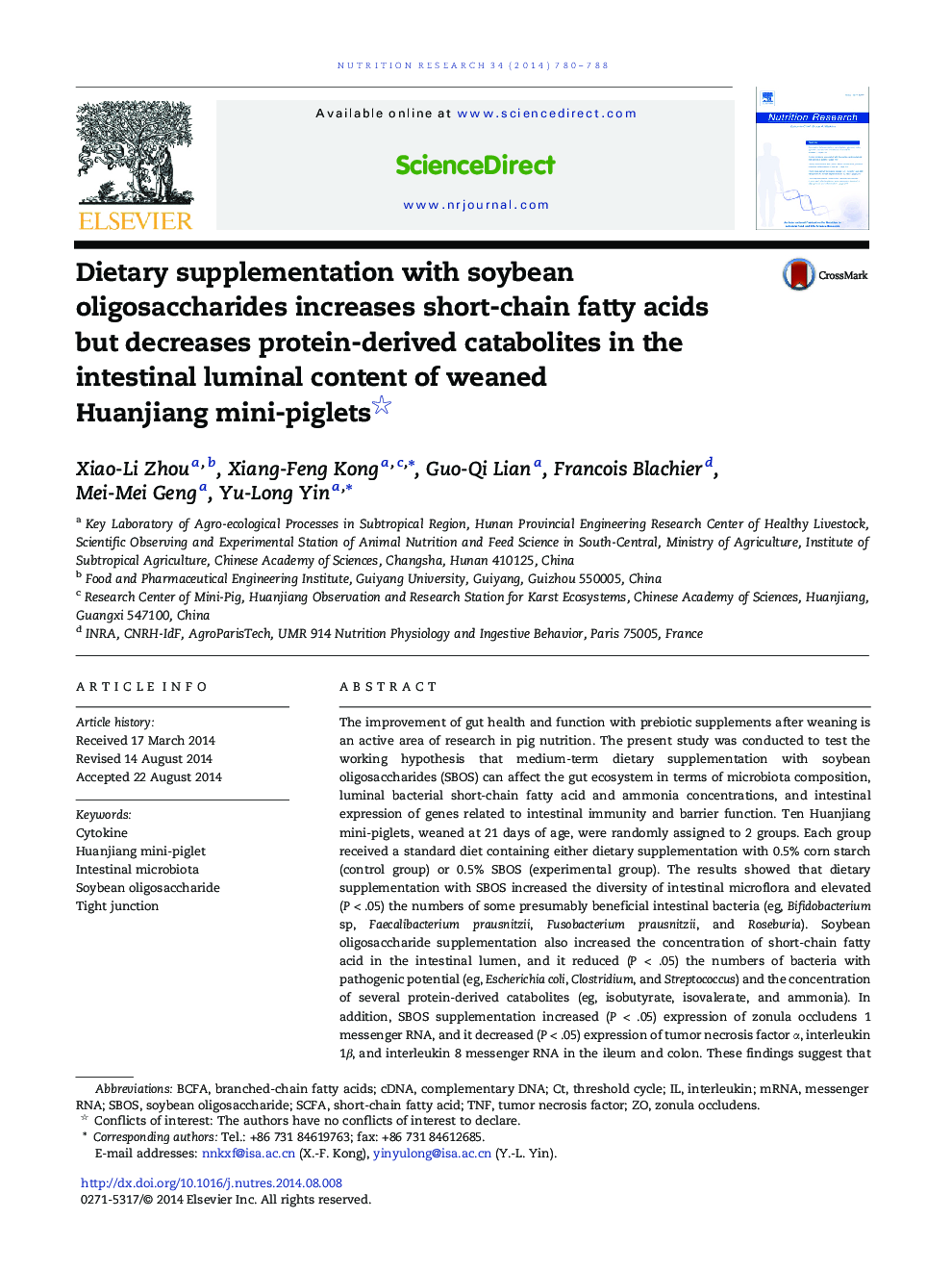| کد مقاله | کد نشریه | سال انتشار | مقاله انگلیسی | نسخه تمام متن |
|---|---|---|---|---|
| 2809019 | 1157993 | 2014 | 9 صفحه PDF | دانلود رایگان |

The improvement of gut health and function with prebiotic supplements after weaning is an active area of research in pig nutrition. The present study was conducted to test the working hypothesis that medium-term dietary supplementation with soybean oligosaccharides (SBOS) can affect the gut ecosystem in terms of microbiota composition, luminal bacterial short-chain fatty acid and ammonia concentrations, and intestinal expression of genes related to intestinal immunity and barrier function. Ten Huanjiang mini-piglets, weaned at 21 days of age, were randomly assigned to 2 groups. Each group received a standard diet containing either dietary supplementation with 0.5% corn starch (control group) or 0.5% SBOS (experimental group). The results showed that dietary supplementation with SBOS increased the diversity of intestinal microflora and elevated (P < .05) the numbers of some presumably beneficial intestinal bacteria (eg, Bifidobacterium sp, Faecalibacterium prausnitzii, Fusobacterium prausnitzii, and Roseburia). Soybean oligosaccharide supplementation also increased the concentration of short-chain fatty acid in the intestinal lumen, and it reduced (P < .05) the numbers of bacteria with pathogenic potential (eg, Escherichia coli, Clostridium, and Streptococcus) and the concentration of several protein-derived catabolites (eg, isobutyrate, isovalerate, and ammonia). In addition, SBOS supplementation increased (P < .05) expression of zonula occludens 1 messenger RNA, and it decreased (P < .05) expression of tumor necrosis factor α, interleukin 1β, and interleukin 8 messenger RNA in the ileum and colon. These findings suggest that SBOS supplementation modifies the intestinal ecosystem in weaned Huanjiang mini-piglets and has potentially beneficial effects on the gut.
Journal: Nutrition Research - Volume 34, Issue 9, September 2014, Pages 780–788